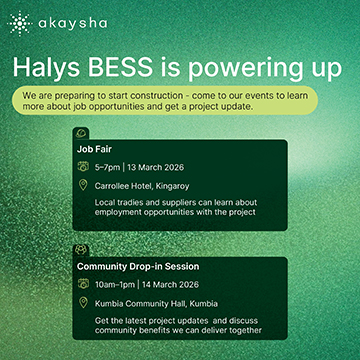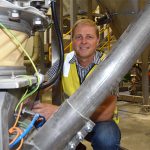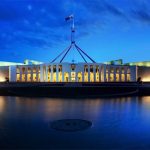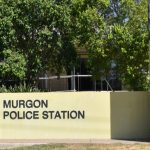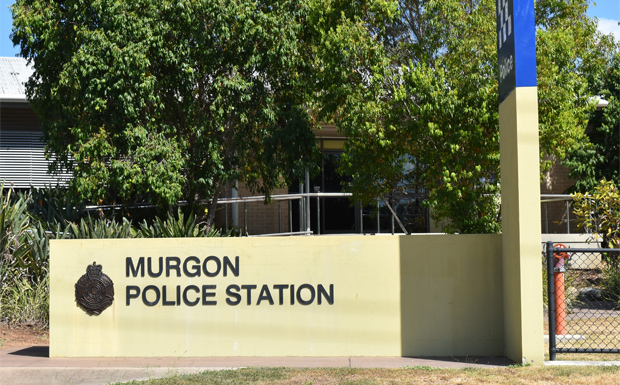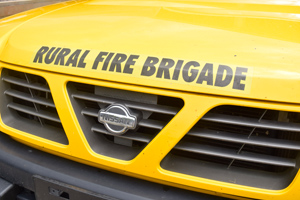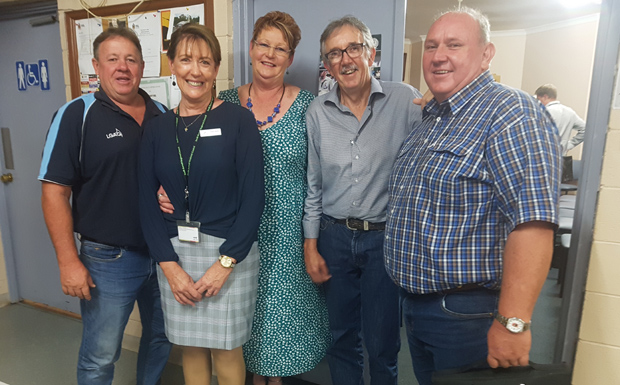
January 29, 2020
A long decline in the South Burnett’s tourism industry can be reversed if local operators stop listening to government tourism organisations and return to doing things themselves.
This was the message Visit South Burnett (VSB) president Jason Kinsella gave a packed meeting at Blackbutt RSL on Tuesday night.
Jason told the audience the South Burnett’s tourism industry has been slowly strangled by bureaucrats imposing a “top down” approach to marketing on tourism operators over the past 15 years.
To reverse this, local tourism needs to return to the system that ran successfully in the early 2000s.
That approach was a “bottom up” one where industry members – not people working for the State Government – set the agenda and developed a culture of collaboration to maximise the value of every visitor.
Jason told the audience South Burnett tourism had flourished in the early 2000s when local Councils and the former South Burnett Tourism Association (SBTA) elected to cut their ties with the State Government’s Tourism Queensland network and “go it alone”.
Local operators and the former Shire Councils promoted the region through a network of Visitor Information Centres.
They produced their own tourism marketing materials and created collaborative marketing projects between different operators.
This approach proved so successful that within just a few years the number of tourism businesses increased dramatically to more than double what they are today.
The SBTA also quickly found itself struggling to find venues big enough to accommodate the 100 or more members who packed each meeting.
However, the industry began to go into decline when the South Burnett rejoined the TQ network several years later – first with the Fraser Coast RTO, and then with the Toowoomba-based Southern Queensland Country RTO after a state-wide shuffle.
Rejoining the RTO network meant that instead of having any direct say in tourism activities, SBTA members were told what these distant organisations planned to do and were expected to “fall into line” with those plans, whether they agreed with them or not.
This led to a slow decline in both visitor numbers and tourism operators that ended with the dissolution of the SBTA in mid-2015, followed by the withdrawal of the South Burnett Regional Council from the RTO network two years later.
In the past five years, Jason said, tourism in the South Burnett had remained relatively static despite the best efforts of Council to reverse the situation.
He told the audience Visit South Burnett had been formed in 2017 to recreate the “bottom up” approach that had worked so well in the past.
But it had only recently reached a partnership agreement with the South Burnett Regional Council that would enable this to occur.
Now this was in place and both groups had agreed to work together, though, VSB was on a recruitment drive.
Jason said it was his view – one shared by other members of the VSB foundation committee – that tourism operators knew what worked best in their own industry, and in their own area.
What they lacked was knowledge about what was going on in other towns, and an easy way to capitalise on that knowledge.
He suggested that local festivals were a good example of this.
Festivals and sporting events drew tens of thousands of tourists to the South Burnett every year, but tourism operators were failing to fully capitalise on them because there were no systems in place that allowed them to.
“We need to work together in these sorts of situations,” Jason said.
“Visitors need food and accommodation if they stay overnight. They need places to go and things to see. And if we make it easy for them, they will.
“This is where an LTO can step in and share information and ideas grounded in the practical knowledge of people who make their living out of tourism every day.”
Jason said VSB will be holding a series of meetings across the region over the coming month, culminating in the group’s official launch on February 25 at Nanango RSL.
The organisation’s foundation committee was made up of himself as president; Julie Thomson from Kingaroy Country Motel as secretary; Gloria Kirkness from NaTDA as treasurer; and Neil Black (Pioneer Lodge Motel), Jeff Connor (Blackbutt Avo Fest), Rob Patch (The Peanut Van) and Carolyn Stone (Passchendaele Farm Stay) as committee members.
Jason said it was proposed that VSB’s executive committee run on a portfolio system, much like Council, so that representatives could be drawn from key industry groups such as motel accommodation, B&B and farmstay accommodation, events, wineries, and similar subsets.
This would facilitate information exchange and ensure all members had industry stakeholders representing their particular interests.
Once formed, meetings would be held at a different town each time to ensure all parts of the region were represented.
Membership would initially be $100 per year – with a 50 per cent discount for those who join by June 30 – and VSB’s first AGM would be held in June.
After this talk, the meeting was thrown open to general discussion and Blackbutt and Benarkin operators advanced their own ideas about improvements that could be made to local tourism.
These included reinstalling a lookout over Meandu Mine; improving bus transport; working more closely with Brisbane Valley tourism and rail trail groups; and the importance of ensuring Yarraman was included, despite the town being located in the Toowoomba Regional Council area.
Jason said VSB membership was open to anyone, no matter where they lived or whether they ran our tourism business or simply wanted to work towards reinvigorating the region’s tourism industry.
“The drought has hit our farmers hard, and it could take some as long as 10 years to get fully back on their feet,” he said.
“This will have a big effect on our local economy.
“But reinvigorating tourism is one way we can all improve things quickly.”
- Further VSB formation meetings will be held at Kingaroy’s 19013 Council Chambers in Edward Street (February 4); Nanango RSL’s Long Tan Room (February 11); Murgon RSL’s Diggerrs Room (February 18); and the Wondai Regional Art Gallery (February 20). All meetings will run from 5:30pm to 6:30pm.
Related articles:
- Tourism Group Starts Membership Drive
- Council To Enter Tourism Partnership
- Tourism Meeting At Wooroolin
- Report Looks At VIC Options
- LTO Seeks Partnership With Council
- Tourism Advisory Group Meets Soon
- Visitor Numbers Continue To Fall
- Council To Set Up Tourism Committee
- Council Plans Tourism Advisory Group
- Discussion Paper Canvasses VIC Options
- Council To Discuss Tourism Marketing
- Tourism Operators Want A Say
- Council Unveils New Tourism ‘Structure’
- Tourist Inquiries Drop 5pc
- Crisis Meeting For Tourism Operators
- Tourism Review On Thursday
- Council Maps Future Of VICs
- Council Reviews Role Of VICs
- Pumpkin Festival Query Sparks Anger
- Council To Consult On Tourist Guide
- Council Subsidises Pumpkin Festival
- Local Tourism Marketing Falls Flat
- Council Approves $50k Tourism Spend
- Forum Cooks Up Tourism Ideas
- Local Tourism Group In Limbo
- Council Pulls Plug On Tourism Board
[UPDATED with correction]






